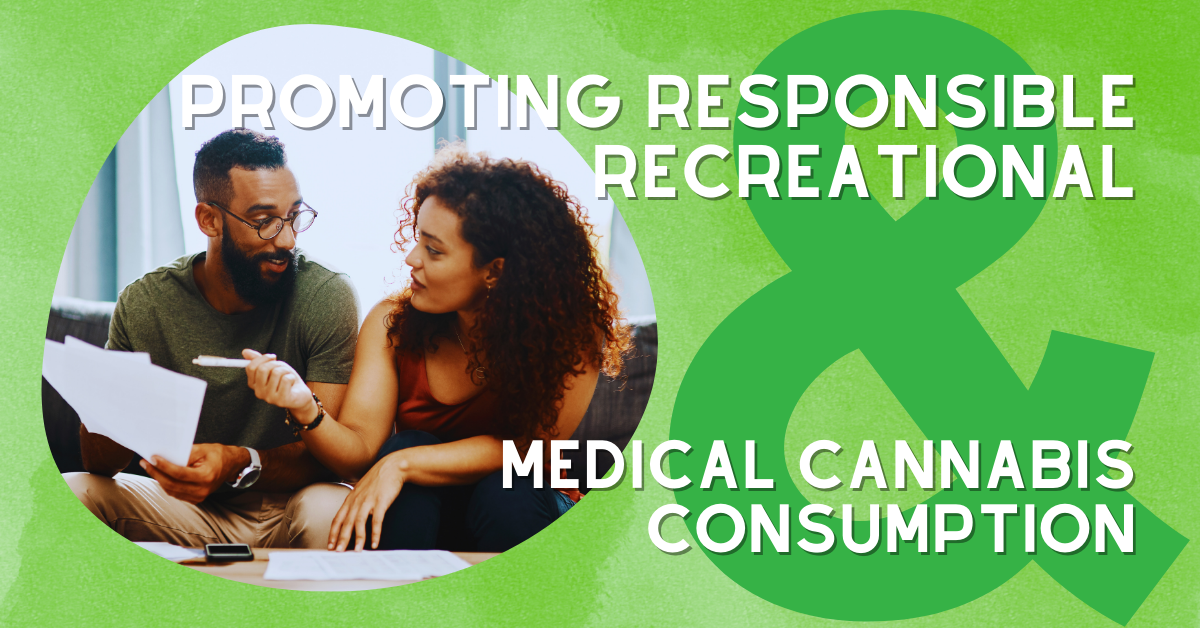
This website is for users aged 21 and over. Please confirm your age.

Factors affecting the use of cannabis play a significant role in determining its impact on individuals and communities. In this section, we’ll explore the effects of socio-economic status on cannabis use, cannabis use among students, and the environmental impact of cannabis cultivation. And we are seeking to explain the role of recreational and medical cannabis in promoting responsible and sustainable cannabis consumption.
We’ll uncover how these factors contribute to the responsible and sustainable consumption of cannabis as we strive to understand this complex and controversial plant.
Cannabis use is a complex issue connected to someone’s socio-economic status. Research has been done on the effect of Socio-economic Status on Cannabis Use. It shows that people from lower economic backgrounds are more likely to use cannabis than those from higher-income households. This is seen in both legal and illegal markets.
It’s essential to see the impact of low socio-economic status on cannabis use. It can lead to severe problems like addiction and poor mental health. Hence, promoting responsible recreational and medical cannabis consumption so people in this socio-economic category understand its role. Socioeconomically disadvantaged people might not have access to drug education, which can harm their health.
Specific populations, like youth, indigenous people, homeless people, and undocumented migrants, are affected by socio-economic disadvantage and higher cannabis use. We must look at poverty and other societal factors that cause substance use in these groups.
We need to give attention to interventions for vulnerable groups in resource-limited environments. The public policy response to Cannabis reform needs to consider these factors. College students are also susceptible to cannabis use. We must see how socio-economic status influences use in this group.
Cannabis use amongst students is a global worry. Recent studies have shown young adults are facing negative results from using cannabis. Providing educational resources and preventive measures to protect this vulnerable population is vital.
Research has uncovered that cannabis consumption among young adults can negatively affect their academic performance, social functioning, and mental health. To understand why students use cannabis, assessing their socio-economic status, family history, and peer influence is crucial. Additionally, easy access and lack of monitoring are contributing factors.
A successful solution to reduce incorrect cannabis consumption amongst students is to create early prevention strategies. These should be tailored to high-risk groups, e.g., those with a family history of drug use or those who have already tried marijuana. Teachers and trained professionals can run school-based interventions, while peer-supported prevention programs can encourage healthy behavioral choices for vulnerable students. By doing so, it helps in promoting responsible recreational and medical cannabis consumption among the student population overall.
Statistics reveal that over 4 million college students use illegal drugs each year. This displays the significant problem it poses to academic success and constructing a positive route in adulthood. Addressing cannabis use among students is essential to guarantee their well-being and promote a better future.
Cannabis cultivation has a significant effect on the environment. It needs lots of water and nutrition, which leads to soil damage and poor water quality. Growing also causes deforestation, as farmers cut down forests for more crops. This destroys wildlife habitats and reduces forests’ CO2 absorption. Plus, growers use chemicals that pollute water sources and hurt local ecosystems.
To reduce these impacts, growers should use organic farming and save water. Waste management is vital for the prevention of landfill contamination. Governments must control pesticide use and promote green growth. Not doing this could damage our planet’s natural resources, which must be kept for future generations. Sustainable cannabis consumption is essential for a responsible and ethical industry that looks after the environment.
The Initiative for Sustainable Cannabis Consumption is a step towards responsible use and production of cannabis. In this section, we will discuss the sub-sections of this initiative, which include:
Through these measures, the initiative aims to foster a sustainable cannabis industry that benefits its users and producers alike.
Cannabis consumption has become a heated topic in today’s era. It’s essential to promote sustainable use and teach people about responsible consumption. We must also consider the environmental and economic impacts of cannabis use.
Encouraging responsible and controlled usage is vital. We need to spread awareness of the short-term and long-term effects on health. Also, promoting a culture where people are knowledgeable about reducing environmental impact is very important.
Certified sustainable production, harvesting, and processing of cannabis products should be made available. Collaborating with cannabis producers for eco-friendly growing practices is vital too.
Regulatory frameworks must be created to encourage resource efficiency and sustainability. Individuals should also be educated on reducing their carbon footprints with small lifestyle changes.
It is essential to understand the importance of sustainable cannabis consumption. Raising awareness in the community towards responsible usage is crucial. Creating dialogue within regulated frameworks and local communities is essential for knowledge growth.
Motivated innovation is endless when it comes to issues related to legalizing medicinal usage and reducing harm. But, equal rights and economic resources are not always distributed equally and can limit marginalized communities.
In conclusion, promoting sustainable and responsible cannabis consumption is critical. Educating individuals, fostering eco-friendly practices, and creating regulatory frameworks are necessary.
The cannabis industry is expanding, creating jobs and economic benefits. Unfortunately, many producers have been left behind due to discrimination and lack of resources. The Initiative for Sustainable Cannabis Consumption was created to promote equal rights and resources.
Equal rights are essential to guarantee fairness in the industry. This includes small-scale producers, women, and minorities who may struggle with financial services and face social or legal struggles. The initiative wants to solve these inequalities by advocating policies that give everyone equal access to finances, training programs, and other support.
Policies must be pro-poor and gender-sensitive to ensure everyone can benefit from the industry’s growth. The initiative is devoted to making policy frameworks that promote sustainable production and aid small-scale farmers and other groups.
Promoting sustainable cannabis consumption has long-term advantages and reduces environmental damage caused by unsustainable practices. We must collaborate to guarantee everyone has the same access to financial services so that everyone can benefit from the cannabis industry. Why rob a bank when we can open a cannabis business? But only if we all have the same chance.
Cannabis businesses experience difficulty accessing financial services due to legal regulations and social stigma. Sadly, many financial institutions do not provide services to cannabis-related businesses, leaving them without access to essential financial resources.
The Initiative for Sustainable Cannabis Consumption acknowledges this issue and pushes for equal access to financial services for cannabis producers. They’re actively campaigning for policies that enable cannabis businesses to use banking services and get loans.
Also, taking part in initiatives that promote responsible and sustainable consumption of cannabis can help reduce the stigmas surrounding the industry. This can result in more mainstream acceptance of cannabis-related businesses by financial institutions, eventually leading to increased access to vital financial resources.
In addition, increasing public support for legal cannabis can aid in giving access to financial resources for cannabis businesses. Financial institutions may be more likely to offer services if more people view the industry positively.
To conclude, improving access to financial services for cannabis businesses requires policy modifications, educational initiatives, and more public support. The industry can get the help it needs to thrive and grow sustainably by taking these steps.
In Africa, the history and effects of cannabis policies have ranged from criminalization to decriminalization and medicinal provisions. However, with better access to financial resources, cannabis businesses in Africa and worldwide can keep developing and contributing to society.
Africa is a region with a rich history of cannabis use. But the country has also struggled with negative consequences resulting from existing cannabis policies. In this section, we’ll take a closer look at the current status of cannabis use in Africa and the history that has led to the current policies. We’ll explore the negative consequences of these policies and the potential benefits that could result from the decriminalization of cannabis and provisions for medicinal use.
Cannabis has been in use in Africa for ages. Even though it’s illegal in most African countries, people still use it. Country-wise, the status of cannabis use in Africa differs due to different policies and attitudes.
In many African cultures, cannabis is part of traditions and customs. For example, in some parts of East Africa, cannabis is used in religious ceremonies. It has medicinal uses, too, or is taken recreationally. This widespread use of cannabis has posed difficulties for policymakers.
The effects of existing cannabis policies have been harmful. It causes more violence and corruption in the criminal justice system. It also results in social stigma for users. People are scared of changing laws because of fear of drug abuse.
Research into cannabis’ cultural significance and medical importance can help create policies that balance public safety and individual rights.
Existing cannabis policies have had many harmful effects. Countries in Africa that implement strict cannabis laws to obey international drug treaties have made poor farmers who grow cannabis for their living criminals. This has created a range of problems. It has also worsened public health and increased substance abuse, making life more difficult for those already having a hard time.
These bad laws have made racial inequalities worse and made violence in Latin American countries, where drug trafficking is common, increase too. The current approach to punishing drug users hasn’t prevented people from using drugs. Instead, it has caused overcrowded prisons and made economics worse.
It is becoming more popular to rethink the current cannabis policies. To fix the negative effects, positive initiatives are best to prioritize policy reform, which ensures everyone’s involvement regardless of gender. Policymakers should use evidence-based approaches like allowing people to use cannabis without punishment. Also, ensuring regulations of supply chains and making harm reduction programs to help people affected by the war on drugs.
Using a more humane approach, human rights violations concerning cannabis policies are reduced, and vulnerable populations suffering from historical injustices would be helped. Policymakers must rethink their approach to cannabis policies to minimize the harmful effects and make positive changes.
Cannabis policies in Africa have changed drastically in recent times. Decriminalization and medicinal marijuana have become the focus. The continent has a long history of cannabis use, and it reflects the country’s current policies.
A new wave of legalization of medical marijuana has sparked decriminalization in some countries. This enables the exploration of potential therapeutic benefits.
South Africa’s constitutional court ruled adults can use cannabis privately. Malawi’s Parliament approved a bill legalizing marijuana cultivation only for medical and industrial use.
The future looks bright as African policymakers create regulations for fair access to medical marijuana and responsible use. THC and CBD, the two main components of cannabis, give users both therapeutic and recreational benefits.
THC and CBD compounds are two of the most significant aspects of cannabis consumption, whether for medical or recreational purposes. In this section, we will explore the crucial role they play in shaping the cannabis consumption pattern. From CBD’s therapeutic effects to THC’s psychotropic effects, we will examine their impact on recreational and medical cannabis consumption.
Medical cannabis use is heavily reliant on THC and CBD. THC, a psychoactive element in marijuana, is widely effective for pain relief and inflammation reduction. Meanwhile, CBD’s non-psychoactive nature has gained recognition for its potential to treat anxiety, depression, and seizures.
The ratio of THC to CBD is essential for determining the therapeutic effects of medical cannabis. A higher THC-to-CBD ratio could work for chronic pain, while a higher CBD-to-THC ratio may be better for anxiety. Healthcare professionals must consider both components when prescribing medical cannabis.
It’s essential to grasp the cannabinoid profile and dosage each patient needs for their condition. This will help them get the most out of medical cannabis. Researching THC and CBD components will improve treatment outcomes and support evidence-based medicine.
Recreational cannabis use involves consuming THC and CBD compounds found in the plant. THC is the primary psychoactive ingredient, causing a “high” feeling. CBD, on the other hand, is non-psychoactive and has therapeutic qualities. It eases anxiety, inflammation, and pain and doesn’t induce a high.
The content of both THC and CBD can differ between strains. Recreational users seek THC for a more potent effect. Medical users prefer higher CBD levels. Vaping, smoking, or taking edibles are standard methods of recreational consumption.
THC has psychoactive effects but can also have adverse effects. CBD is generally safe with few side effects. A JAMA Psychiatry study suggests long-term use of recreational cannabis can alter brain structure. Research from Jama Network Open in 2020 suggests users are more likely to look for specific effects than trying to get a different high every time.
With increasing public support and shifting attitudes toward cannabis legalization, the use of recreational and medical cannabis is gaining widespread acceptance.
In this section, we will explore various strategies for increasing public support for legal cannabis consumption and its role in promoting responsible and sustainable cannabis use.
The view on cannabis legalization has changed over time. Various factors like the environment and economy have affected people’s thoughts. It’s becoming more accepted, so cannabis legalization is a significant subject worldwide.
Despite many backing it, some countries still ban it. Its legal status depends on morals, health, economics, and laws in different places. Some have legalized it for medical and recreational use; others still forbid it.
To get folks to accept it, strategies must fit with their culture. This would help legalize marijuana in different parts of the world.
Public backing for legal cannabis can improve with different strategies. It’s critical to move attitudes toward legalization. The negative perception of cannabis consumption must change. People must learn about its recreational and medicinal advantages. Teaching the public about THC and CBD in medical and leisure use can positively increase acceptance.
To increase public backing, resources for cannabis-related strategies need strengthening. Gender-sensitive policies must address problems that may arise from the industry’s growth. Interventions should advertise sustainable cannabis use while ensuring everyone in the industry has the same rights and economic resources.
Another way to get public support for legalizing cannabis is to understand what influences global acceptance. And an excellent way to get this feedback is through research. A better understanding of these factors can also assist in alleviating worries about potential problems with legalization.
In conclusion, understanding global attitudes toward cannabis legalization is essential. We need legalization to make effective strategies to tackle negative feedback and increase public support for legal cannabis.
With the advent of cannabis legalization worldwide, understanding the factors that affect global acceptance of cannabis becomes crucial in developing responsible and sustainable cannabis consumption strategies. In this section, we will explore the key factors that impact the global acceptance of cannabis and delve into developing effective strategies to alleviate negative feedback.
The legalization of cannabis has been gaining acceptance in recent years. Studies suggest that the history and current status of cannabis use in regions impact public attitudes. Cultural, religious, and social beliefs also affect how people view cannabis. Negative consequences of existing policies are influencing global acceptance.
Education on cannabis’s economic impact is crucial for supporting or opposing legalization. Job creation and local economies can improve while promoting responsible use for addiction and health issues. Access to information about recreational and medical use of cannabis is essential. Strategies to reduce negative feedback and advance the case for cannabis require cooperation between stakeholders.
Legal marijuana sales exceeded $10 billion globally in 2018 – showing changing sentiments. Not everyone may be happy, but thoughtful strategies can help calm potential opponents and create a higher future. Understanding factors affecting global acceptance is critical to developing policies that benefit society.
Negative feedback is a big problem in the move to legalize cannabis. It is necessary to make strategies to reduce this feedback and promote its global acceptance.
Policymakers must think of many factors that affect the acceptance of cannabis. Policies that are good for people who are poor and give women rights can lower criticism of using cannabis. But, resources need to be organized to show that it can be done safely and responsibly.
It is also essential to understand the harmful effects of existing cannabis policies. Strategies can be made by looking at these effects and learning ways to reduce such effects. Everyone should have equal rights regarding cannabis and access to finances.
Suggestions like changing attitudes about cannabis through education, making good policies with public help, and choosing safe cannabis use can help to show the good parts of cannabis and reduce negative ideas about it. These strategies can change people’s thoughts and help legalize cannabis for medicine and fun.
This section will examine strategies for mobilizing resources and creating sound policy frameworks that can promote pro-poor and gender-sensitive development in the cannabis industry. We’ll look at how cannabis-related development strategies can positively impact communities, including measures to mobilize resources and create policies that benefit underprivileged and marginalized groups.
The cannabis industry is rapidly growing, and mobilizing resources for more development strategies is essential. To do this, finances need to be sourced from various sources. Grants from donors and loans from financial institutions must be explored. Public-private partnerships and policies that support investment should be established.
Frameworks should prioritize pro-poor and gender-sensitive strategies. Adverse effects on vulnerable groups should be addressed. Equity in rural and urban areas affected by production should be provided. Small-scale local producers should be supported with training programs and access to cooperatives.
Impact investing attracts wealthy investors to socially responsible projects. Cannabis Development Funds can pool resources from governments and private sources to support recreational and medical cannabis for low-income communities. These funds should focus on female-owned businesses and use proper allocation frameworks to champion gender equality.
Creating a policy framework that is pro-poor and gender-sensitive is vital to promoting responsible cannabis consumption. To do so, policies must address the negative effects of existing policies, such as criminalization. Plus, cannabis producers must be provided with equal rights and resources. This will drive positive socio-economic impacts on marginalized populations.
Factors such as public attitude shifts and increasing support for legalization must be on the table when considering global acceptance of cannabis legalization. To this end, information campaigns and education on the positive aspects of legalized cannabis can help improve public perception.
Cannabis-related developmental strategies can reduce poverty and create more employment opportunities in marginalized communities. However, these strategies must be overseen by regulatory frameworks emphasizing gender-sensitive development policies emphasizing sustainability and economic equality.
The Initiative for Sustainable Cannabis Consumption promotes sustainable practices and transparency in government regulations. By creating sound policy frameworks for pro-poor and gender-sensitive development strategies, we can ensure responsible cannabis consumption and positive impacts on vulnerable populations.
The initiative involves collaboration between civil society organizations, researchers, and affected populations to analyze the interlinkages between sustainable development, human rights, environmental issues, and laws, policies, and practices related to the Cannabis sativa L. plant, with a particular focus on international law and the drug control system.
The participating organizations include FAAAT (France), DRCNet Foundation (USA), OECCC (Spain), Czech Hemp Cluster (Czech Republic), Fields of Green for All (South Africa), and European Industrial Hemp Association (Germany).
The initiative aims to achieve several goals related to poverty reduction, including eradicating extreme poverty, reducing the proportion of people living in poverty, ensuring equal rights to economic resources, and building resilience to climate-related events and disasters. The initiative also aims to mobilize resources from various sources and create sound national, regional, and international policy frameworks based on pro-poor and gender-sensitive development strategies.
Factors affecting the use of cannabis include cultural, social, and psychological factors. Cultural and subcultural, social class and psychological factors are particularly relevant to the global acceptance of cannabis legalization. Understanding these factors is essential for stakeholders and governments to develop strategies to alleviate negative feedback from conservative consumers.
Two significant constituents of cannabis are THC and CBD, which are responsible for the mechanism of action and pharmacokinetics of cannabis. THC acts as a psychotropic chemical, causing the “high” feeling experienced by cannabis users, while CBD has therapeutic effects in various medical illnesses.
Cannabis is Africa’s most consumed illegal substance, and policies have led to negative consequences such as prison overcrowding, environmental damage, and regional instability. Some African countries have decriminalized personal use and have provisions for medicinal cannabis, while others are exploring legislation. Eleven countries have existing or pending therapeutic cannabis-specific provisions, with South Africa and Seychelles having regulations for patient access. Cannabis is becoming a more explored frontier in Africa for health, human rights, and economic reasons. So by promoting the responsible consumption of recreational and medical cannabis in these countries, the unwanted stigma can be reversed.
We warmly welcome you to explore our highly acclaimed strains, concentrates, and edibles. Serving recreational clients with pride is our passion.
At our dispensary, you'll find a professional yet inviting atmosphere that prioritizes your comfort and privacy. Feel free to stop by at your earliest convenience to experience it for yourself. We can't wait to serve you!


